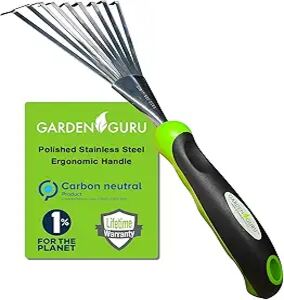Just How Gardening Can Improve Your Wellness and Health and wellbeing
Just How Gardening Can Improve Your Wellness and Health and wellbeing
Blog Article
Unlocking the Perks of Gardening: A Thorough Look at the Various Types and Their Influence On Well-Being
Exploring the complex advantages of gardening reveals a range of methods that significantly boost individual well-being. As we take a look at these varied gardening techniques, it comes to be obvious that their influence can resonate on individual, social, and environmental degrees, triggering a better look at just how these links form a cohesive story of holistic health.
Types of Horticulture

Blossom gardening, one more popular category, highlights the visual appeal of cultivated flowers. This kind can improve landscapes and promote biodiversity by attracting helpful pollinators. In a similar way, natural herb horticulture involves expanding fragrant and culinary plants, contributing both to cooking and all-natural remedies.
Container gardening offers versatility, making it possible for individuals with limited space to involve in horticulture by utilizing pots and planters. This method is specifically prominent in city setups. Increased bed horticulture, on the various other hand, includes developing elevated stories that boost soil water drainage and availability, making it less complicated for garden enthusiasts to manage their plants.
Lastly, community horticulture cultivates collaboration amongst individuals in shared spaces, promoting social communication and collective responsibility. Each kind of gardening offers unique purposes and satisfies different choices, making gardening a functional activity that can be customized to specific needs and atmospheres.
Mental Health And Wellness Advantages
Involving in different kinds of horticulture not only generates tangible benefits such as fresh fruit and vegetables and gorgeous blossoms but additionally provides substantial psychological health and wellness benefits. Research shows that gardening can be an effective tool for lowering tension, anxiety, and anxiety. The act of tending to plants and growing a yard promotes a sense of function and achievement, which can improve overall emotional wellness.
Moreover, gardening motivates mindfulness, as it requires people to concentrate on today moment, whether it be growing seeds or supporting growth. This mindfulness technique can lead to lowered rumination and improved mood security. The exposure to all-natural atmospheres throughout gardening has also been linked to improved cognitive functioning and lowered feelings of exhaustion.
Social communication plays a critical role in mental wellness, and go to website community gardening campaigns provide opportunities for people to get in touch with here others, fostering a feeling of belonging. The common experience of horticulture can cultivate relationships and assistance networks, further strengthening psychological resilience.
Physical Health Advantages
Numerous individuals may not realize that horticulture likewise provides considerable physical health and wellness advantages. Participating in horticulture activities requires a variety of physical movements, including flexing, training, digging, and planting, which jointly add to enhanced stamina, adaptability, and endurance. These actions can improve cardiovascular health by promoting an elevated heart price, consequently minimizing the risk of heart problem.
Moreover, horticulture can act as a moderate-intensity exercise, aiding individuals accomplish suggested physical task levels. Researches indicate that routine involvement in gardening can burn substantial calories-- about 200-400 calories per hour, depending upon the strength of the tasks executed. Such calorie expenditure is beneficial for weight administration and general metabolic health and wellness.
In addition, exposure to sunlight during gardening can help with the synthesis of vitamin D, which plays a necessary role in keeping bone health and supporting immune function. The act of horticulture commonly involves functioning with dirt, which has been linked to potential psychological and physical health advantages due to the existence of valuable bacteria.
Social Links Via Horticulture
The public elements of gardening foster significant social connections amongst people. Neighborhood gardens, particularly, function as dynamic hubs where individuals from varied histories collaborated, growing not just plants but likewise partnerships. These common areas encourage collaboration, permitting people wikipedia reference to trade understanding, abilities, and resources, consequently enhancing their gardening experience and promoting a sense of belonging.
Involvement in horticulture tasks usually results in the development of relationships and support networks. Participants often unify for usual objectives, such as growing seasons, harvest parties, or academic workshops, which reinforce social ties and create a sense of area. Such interactions can reduce feelings of seclusion and boost mental health, as individuals discover companionship and camaraderie in shared endeavors.

Environmental Impact of Horticulture
Gardening dramatically contributes to ecological sustainability in multiple methods. Home gardens give essential environments for various varieties, consisting of pollinators such as bees and butterflies, which are vital for ecosystem wellness.

Furthermore, gardens play a crucial role in water preservation. Tactical landscapes, including native plants and xeriscaping, lower water usage and avoid runoff, thereby safeguarding regional rivers from pollution.
Final Thought

The diverse kinds of gardening-- consisting of veggie, flower, natural herb, container, and raised bed-- add to mental and physical wellness, foster social connections, and promote environmental sustainability. By engaging in horticulture techniques, people can experience improved quality of life while also supporting area bonds and environmental wellness.
Report this page